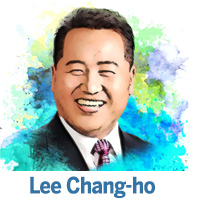The 3rd “Summit for Democracy” held in Seoul, the Republic of Korea (ROK), from March 18 to 20, stated a three-pronged agenda for discussions, namely “defending against authoritarianism, fighting corruption, and promoting respect for human rights”.
 The so-called democracy summit was first held in 2021, initiated by the United States and led by its president, Joe Biden. But the unilateral exclusion of some countries, such as China and Russia, led to controversy over its appropriateness.
The so-called democracy summit was first held in 2021, initiated by the United States and led by its president, Joe Biden. But the unilateral exclusion of some countries, such as China and Russia, led to controversy over its appropriateness.
Like at the previous events, this year, invitation and participation of representatives from Taiwan region, a part of China, drew protests from Beijing, with the US and ROK both reminded that they should abide by the one-China principle as they always pledge.
China has strongly voiced opposition to American chauvinism. President Xi Jinping has said that all nations should uphold economic globalization, free trade and multilateralism for the sake of world peace and prosperity. The Chinese leader has also stressed the need to oppose unilateralism and protectionism in economic and trade issues, and to oppose the politicization, weaponization, and extension of the concept of national security to economic and trade issues.
READ MORE: Seoul summit eyes division, not democracy, analysts say
Multilateralism means that several countries establish a global consultative body to resolve trade issues and ensure that each country adheres to and coordinates the value systems, norms, and procedures. This means advocating comprehensive reciprocity that transcends geographical and spatial boundaries.
It is not new for China to emphasize "multilateralism" in the international diplomatic arena. This is because China has been emphasizing multilateralism by attending international conferences whenever the opportunity arose over the past decade.
Since Xi took office as Chinese president in 2013, top officials from Beijing have attended international conferences and worked to promote the spirit of a community of shared future for humanity, thereby enhancing China's influence. The Belt and Road Initiative, among other policy moves, can be seen as an extension of the Beijing’s multilateralism agenda.
Moreover, the goal of Chinese democracy, which is shaped by China's culture and national identity, is enabling all people to participate in decision-making and sharing the benefits of Chinese modernization. Socialist democracy is something that Chinese society has continuously demanded since the founding of the People's Republic of China, and it is the realization of democracy under the socialist system.
In addition, the evolving of "socialism with Chinese characteristics" was eventually expanded into a broader concept of the whole-process people’s democracy of China. The national identity of Chinese democracy is becoming more solidified amid the Communist Party of China's increased confidence under Xi’s leadership.
Of course, multilateralism did not originate in China, nor is it its exclusive property. Many nations have been breaking with the US-led diplomatic path and building a new diplomatic strategy with China and other countries within the framework of multilateralism.
ALSO READ: Meet trying to divide world, observers say
Now, the world is striving to improve global economic governance through multilateralism. In entails true multilateral diplomacy that will ensure that a nation gets along well with many powerful countries, rather than being friendly only with a specific power, and deciding each country's diplomatic route according to its own interests.
The ROK’s Yoon Suk-yeol administration, which has pursued a diplomatic strategy leaning toward the United States and Japan since the beginning of its term, has undermined ROK-China relations by hosting the so-called Summit for Democracy while excluding Beijing. The ROK, which is highly dependent on China, will bear political, social and economic losses if it fails to safeguard ties with Beijing.
Anything that is lopsided is bound to have negative side effects. The tilted playing field on which the Yoon Suk-yeol administration is stepping now needs a center. Multilateralism is the sole key to getting out of the current diplomatic crisis.
Seoul must actively work to restore the spirit of multilateralism to protect national interests. The ROK should not be a country for President Yoon alone, but one that serves the interests of the nation’s entire 50 million people.
The author is chairman of the Korea-China Exchange Promotion Committee.
The views do not necessarily reflect those of China Daily.


